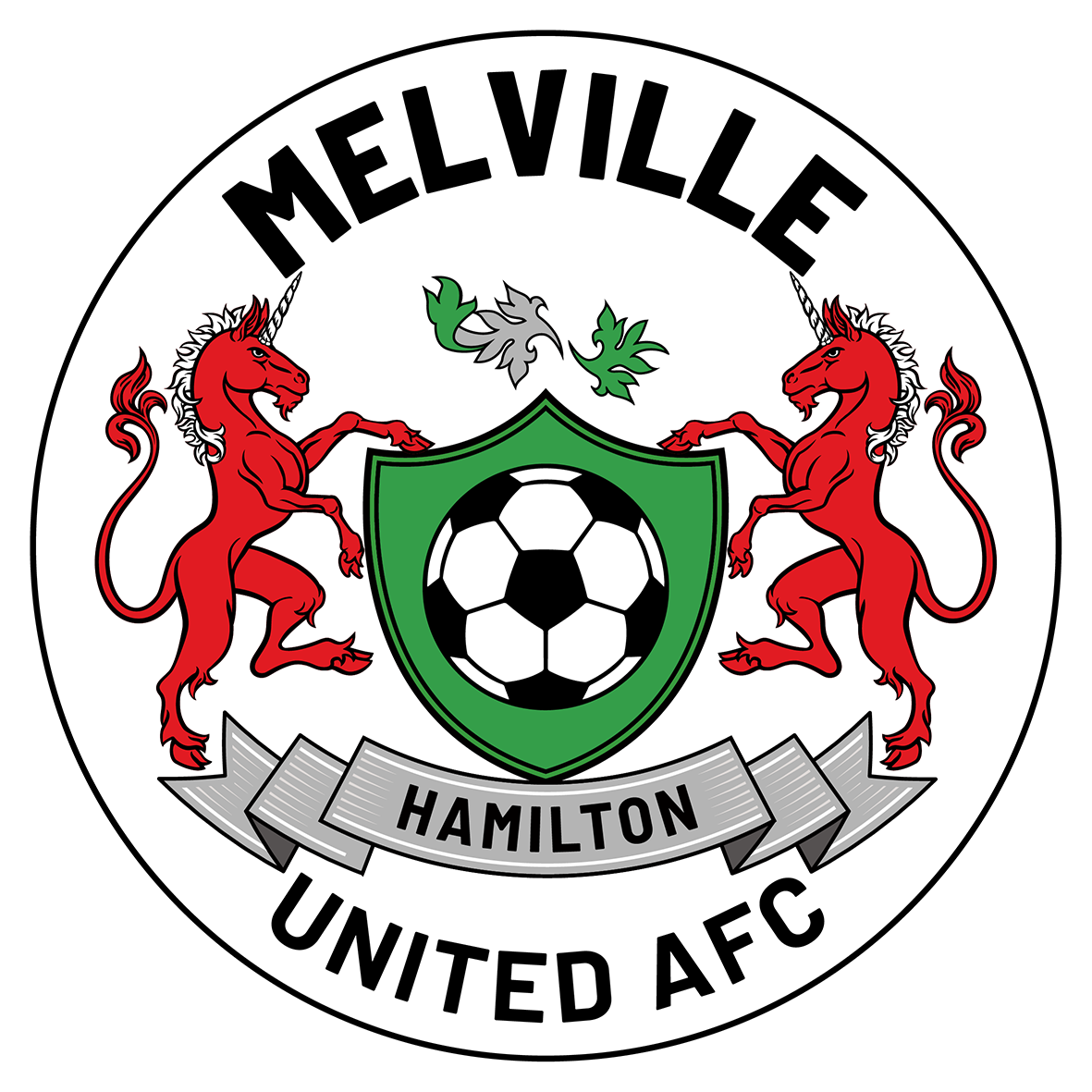



HISTORY
WHERE IT ALL STARTED
Melville United AFC is a Hamilton-based football club formed by the 1996 amalgamation of Melville AFC (1972) and Waikato United (1988).
Through the roots of both parent clubs, Melville United can connect to most of the major club football achievements in Hamilton over the past 60 years.
Melville were formed in 1972, initially as Melville District Schoolboys AFC.
Founders Bob Owens and Tony Tatler sought to combine the strengths of all the schools in the Melville area and originally operated from a home base at Te Anau Park.
In 1981 the shift was made to the current headquarters at Gower Park, with clubrooms initially based on private land at the south-western corner of the park on Kahikatea Drive. Since then the clubrooms have been relocated and are now adjacent to the council amenities block at the park.
Over the last 30 years significant investment has been made in facility improvements at Gower Park. This has included major clubrooms refurbishment, carpark development, erection of floodlighting and a public address system, construction of a crowd barrier fence around the No 1 pitch, seating and perimeter fencing.
Our No 2, No 6 and No 7 pitches are fully floodlit with a further floodlit training area at Kahikatea Park. There are seven full-sized pitches at Gower Park, with a number of various-sized junior pitches.
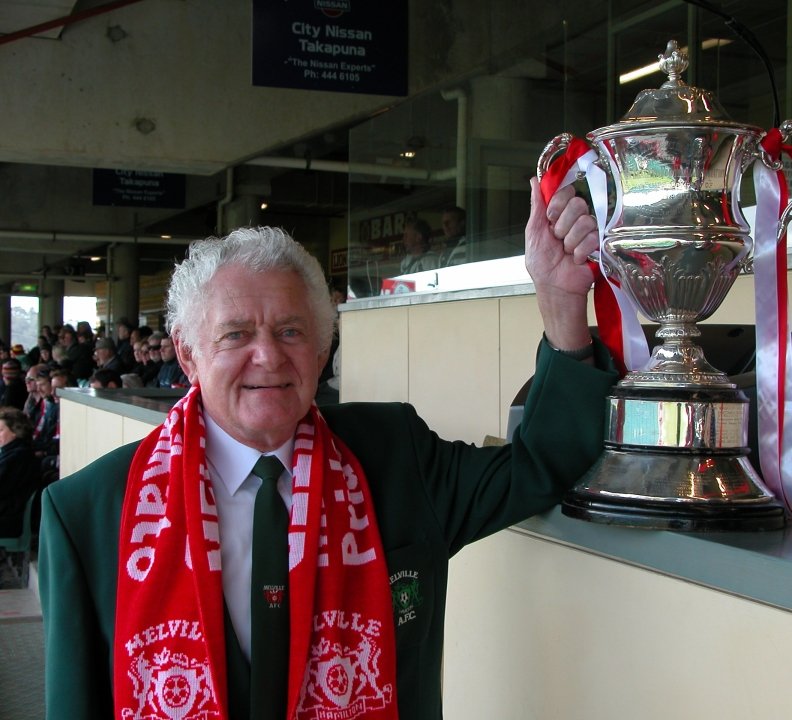
ON THE PLAYING FRONT
Melville gained promotion to the northern league in 1982. From there they steadily worked their way up the soccer ladder, winning the northern league third division in 1991, the first division in 1993, and the northern premier league in 1995.
In 1996 new criteria for the national league meant near neighbours Waikato United were no longer allowed to operate as a one-team entity at that level. They amalgamated with Melville to form Melville United, and it was under this name that the new entity contested the summer national league in 1996-97 and 1997-98.
Waikato United had been founded in 1988 with the specific objective of contesting the National League. Waikato United continued to operate from Muir Park until 1996 when the club was forced to sell its headquarters. (Waikato had previously amalgamated with Hamilton AFC, and among their combined honours were Northern League winners (1972, 1976, 1979, 1984 and 1987), Air New Zealand Cup Winners 1976 and Chatham Cup Winners (1964, 1988, semi-finalists 1970 and runners-up 1992). In turn Hamilton had been formed by an amalgamation of Technical Old Boys (1949) and Wanderers (1913), though Wanderers broke away as Hamilton Wanderers. (Read HERE about Technical Old Boys).
Meanwhile a further bout of restructured competitions in football at national level led to Melville United contesting the North Island league in 1999. But midway through that season an arbitrary decision was made to revert to a national league, and Melville were excluded on the basis of their North Island league position being too low.
INTO THE NOUGHTIES
The club then entered a rebuilding phase and bounced back as northern premier league runners-up in 2000.
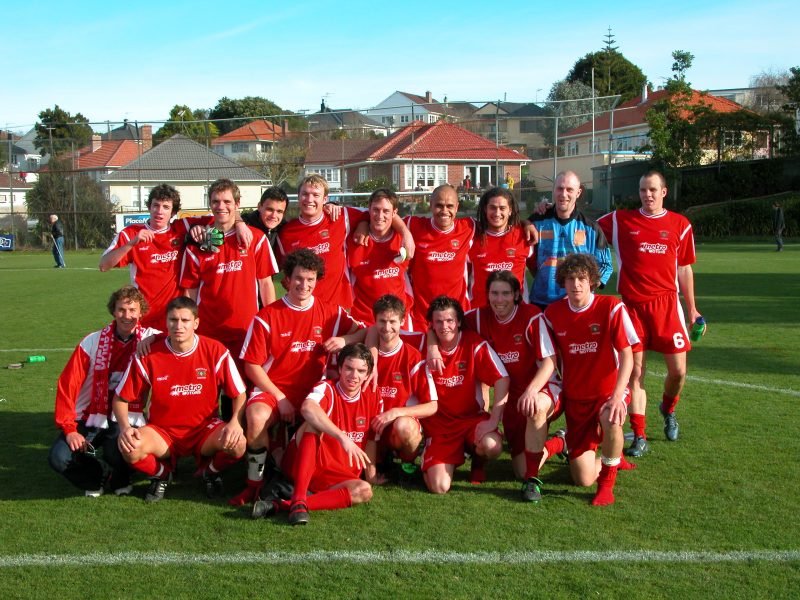
Melville continued to carry the flag for Waikato soccer when they burst back to national prominence in making the final of the Chatham Cup in 2003. While they were beaten in the final 3-1 by Uni-Mt Wellington, they set the competition alight by beating three national league clubs. They also re-established the spirit of the competition as a loud vibrant occasion for supporters, with thousands making the trip to Albany for the final.
They had the consolation of returning home with the Bob Smith Memorial Cup, for the Chatham Cup runners-up. Melville were duly named as Waikato Club team of the Year by Sport Waikato, the first time this award has been won by soccer.
However the financial strain of such an exercise duly showed in 2004, and Melville were relegated from the premier league. In 2005 they finished seventh in the 12-team northern league first division.
In 2006 Melville finished third in the northern league first division. After having set the pace for half the season, it was frustrating to finally miss promotion by one point. However it was good to have Steve Williams, the most successful coach in the history of the club, back on board.
In women’s competition, Melville United won the Waikato women’s championship in 2004 and were runners-up in 2005. Melville Old Boys won their Waikato B division in 2006. In 2007 Melville won promotion back to the northern premier league after finishing runners-up to Lynn Avon United in the first division. For coach Steve Williams it was his fourth promotion, to go with his three league titles during his spell with Melville. Meanwhile the Melville women won the Waikato Division 1 women’s title under coach Peter Honnan.
In 2008 Melville re-established themselves as the leading winter club in the Waikato-Bay of Plenty region, finishing fourth in the Northern Premier League
It was Melville’s best overall finishing position since 2001 (when we came third). Our 52 league goals was the best return since 2000 (when we finished second) and our fourth highest return since entering the northern league in 1982.
Milestones marked during the year included Eddie Trubshoe surpassing Josh Billman as the current player with the most first-team appearances, and Aaron Scott completing his 100th first team game for the club. Meanwhile Melville won the waikato Women’s second division under new coach Scott Robinson. Off the pitch the club completed major kitchen renovations to the clubrooms. First team manager Harry Noorland was made a life member of Melville.
2009 was a momentous year for Melville United, with the club winning the northern premier leagues title – contested under a grand final format – by beating eastern Suburbs 1-0 in the final at Gower Park. Milestones marked during the year included Steven Holloway and Gavin Douglas playing their 100th first team games for the club. Skipper Steven Holloway won the premier league’s Golden Boot Award for most goals scored in the season (15), while strike partner Che Bunce was runner up (12 goals). Holloway, David Samson and Matt Williams were named in the Northern League All Stars team. Coach Steve Williams was made a life member of Melville.
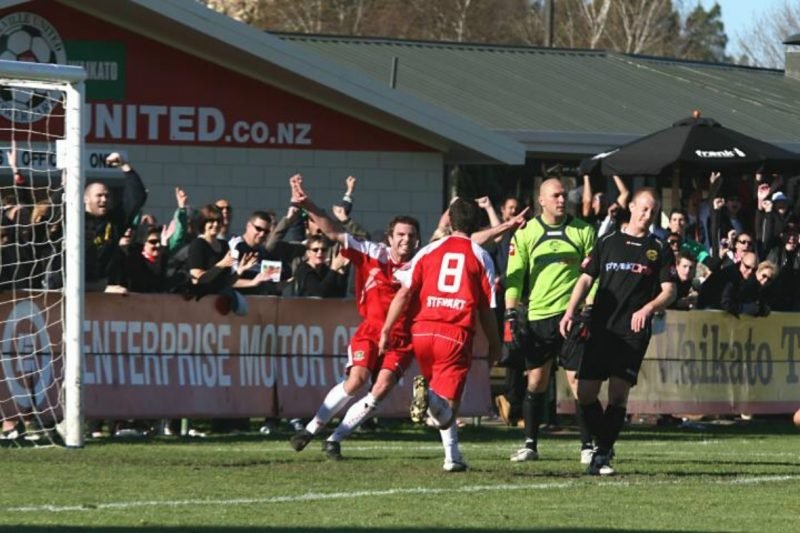
And off the pitch the club made major progress, in installing four resource-consented spectator terrace units on the perimeter of Gower Park No 1 pitch. The No 1 changing room was fully renovated and painted (in club colours), with extra storage facility added for users, the referee changing room was upgraded with an internal buzzer system added, and our clubrooms deck was renovated and extended. A new scoreboard was erected at the north-eastern end of the No 1 pitch and a football-flavoured main entrance sign, imitating a goal, was erected welcoming attendees to Gower Park, while the clubrooms were repainted externally.
Melville United was duly named as Waikato Club Team of the Year and was a finalist for the Club of the Year award.
BACK TO THE FUTURE
In 2010 Melville finished fourth in the northern premier league, though would have finished second had they not drawn their final match. Milestones marked during the year included Wayne Bates registering his 200th first team game in the final match, and Jason Chewins being named the Northern Premier League player of the year based on the votes of all coaches during the season. off the pitch work began on a $250,000 floodlighting project.
In 2011 Melville finished third in the northern premier league, with Mike Thompson runner-up as the league’s golden boot, despite playing only 12 matches. Jason Chewins was again named joint Northern Premier League player of the year across all clubs. Melville won the Waikato women’s title under coach Ray Mackintosh, while there were international honours for Adam Thomas and Mike Kramer (NZ under 20s to World Cup in Colombia), and Jesse Edge (NZ under 17s to World Cup in Mexico).
Off the pitch, work was completed on the floodlighting project, with 56 1500 watt lights covering 2.5 pitches at the eastern end of Gower Park.
In 2012 Declan Edge succeeded Steve Williams as coach, but Melville were relegated from the premier league, after a very young team finished last. Tyler Boyd was plucked from Melville’s ranks to earn a professional contract with Wellington Phoenix as a 17-year-old, and Adam Thomas was selected for the New Zealand team contesting the London Olympics. Tayla Christensen was selected for the NZ under 17 women’s team to the World Cup in Azerbaijan.
A pathway connecting the clubrooms with the western terrace seating was completed, and the No 1 pitch dugouts were upgraded, using seating from Eden Park. Melville women won the Waikato B Division. Melville hosted the inaugural White Ribbon Cup at Gower Park.
In 2013 Melville narrowly missed promotion back to the Northern Premier League but made their mark by reaching the semifinals of the Chatham Cup, and hosting the first such semi-final in Hamilton for 40 years. Aaron Scott was selected for the All Whites and the New Zealand A team. And 2007-2012 Melville player Ryan Thomas gained a professional contract with PEC Zwolle in The Netherlands.
In 2014 Melville gained promotion back to the Northern Premier League, and made the quarterfinals of the Chatham Cup. Meanwhile new dugouts were installed on the No 2 pitch, and major renovation of the No 1 pitch was completed, making the playing surface one of the best in the country.
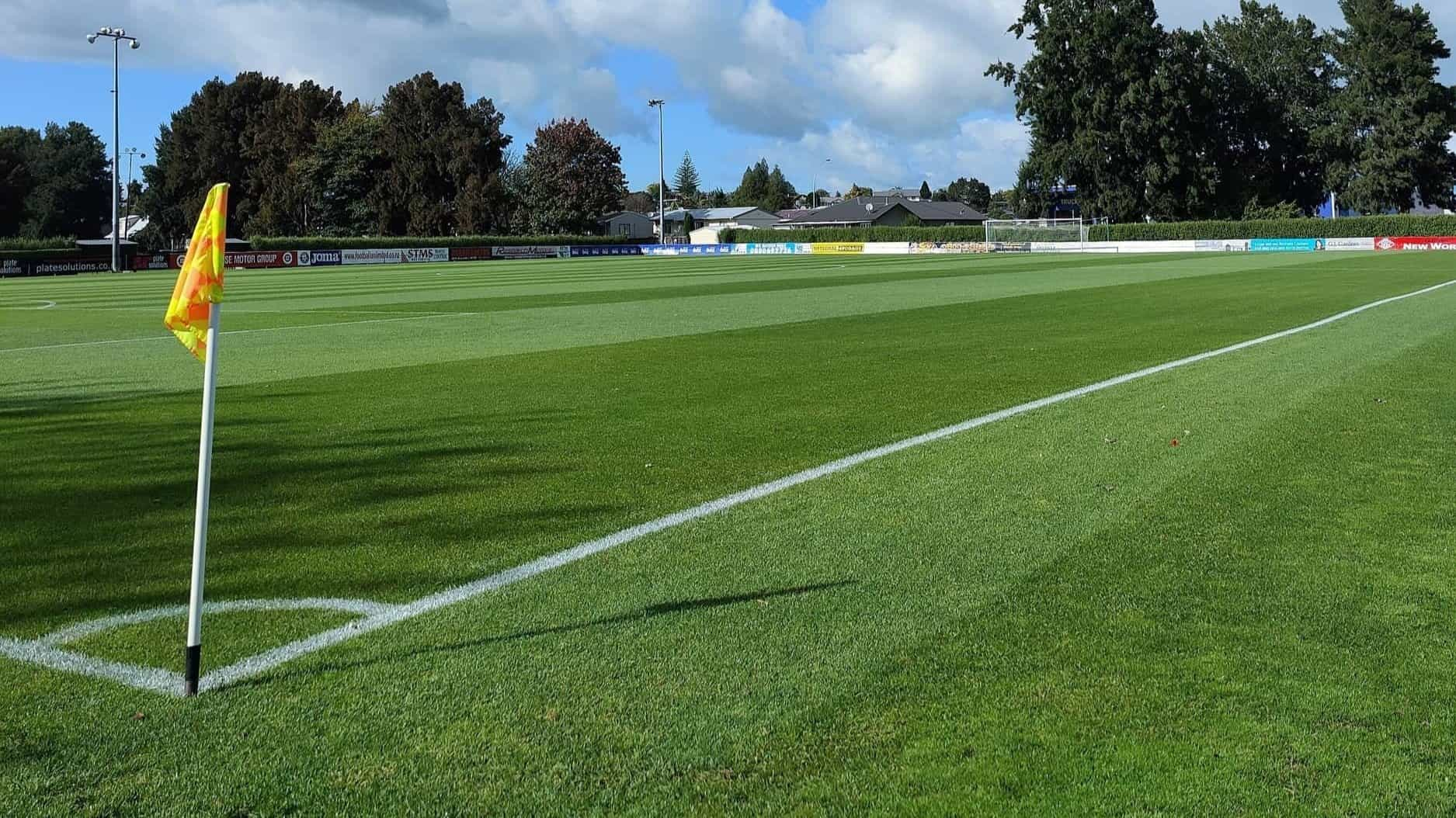
In 2015 Gower Park became a training venue for the Fifa U-20 World Cup, and also hosted its first men’s international, with Uruguay U-20s playing Panama U-20s under lights. A stainless steel sculpture, “The Goal” was unveiled at Gower Park, commissioned to remember past members who had contributed to the club and act as symbol of the universal aspirations of all who play and follow football.
Work also began on preliminary design concepts for new clubrooms, while Melville hosted a National League match between Waibop United and Team Wellington, in what was the first live TV broadcast to occur at Gower Park.
THE MODERN ERA
Melville were relegated from the Northern Premier League in 2016, but in 2018 regained premier status after winning Northern League Division One and lifting the Thomson Shield with three matches to spare. They eventually won by a whopping margin of 16 points, with their tally of 61 points a record for a 12-team first division, in a league which was first contested in 1965. Their goal tally of 71 was a club record, while they conceded just 18 goals. Both their goals scored and their goal difference were the highest across all men’s and women’s northern league football.
Melville were also named by Sport Waikato as finalists for provincial club team of the year.
During the 2018 year a number of club personnel played an important role at national level. Sam Wilkinson served as assistant coach to the New Zealand men’s under 17 team which qualified for the FIFA U-17 World Cup by winning the Oceania tournament in Solomon Islands. Michael Mayne served as assistant coach to the New Zealand under 17 women’s team which won a bronze medal at the World Cup in Uruguay, where Max Tommy also served as goalkeeping coach. Executive committee member Seamus Marten served as team manager for the All Whites at the Hero Intercontinental Cup in India.
In 2019 Melville again made the final of the Chatham Cup, though were beaten 3-2 in one of the most exciting finals in years.
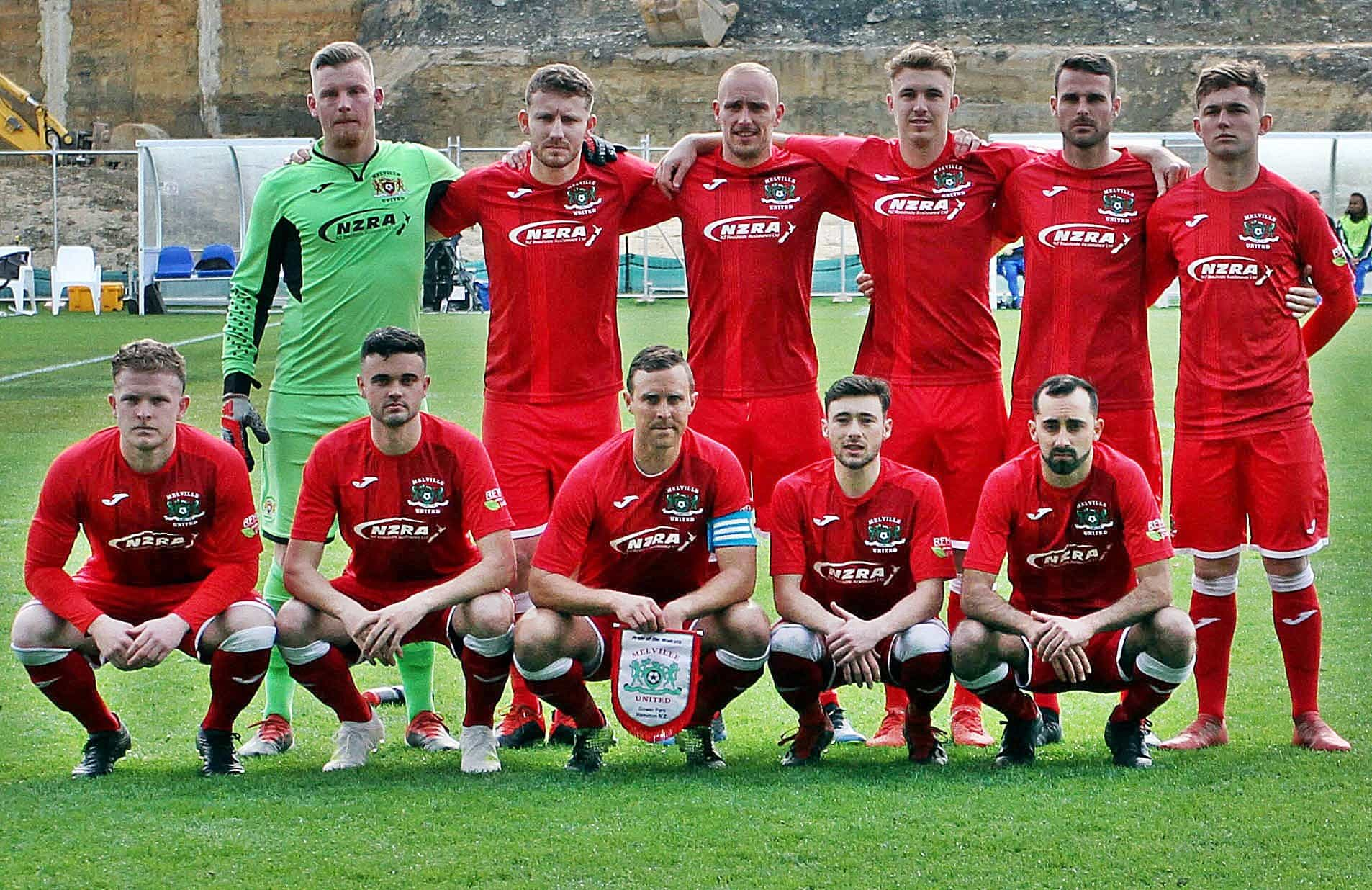
Meanwhile, 18-year-old goalkeeper Jamie Searle gained a professional contract with Aston Villa. And the Wellington Phoenix signed Melville Academy products Fin Conchie, Josh Galletly, Ryen Lawrence, Josh Tollervey, Ben Wallace, Lemuel Le Hane and Sean Leadley.
At the conclusion of the 2019 season co-coach Sam Wilkinson was contracted to a full-time coaching role with the Wellington Phoenix, New Zealand’s only professional club. And fellow co-coach Michael Mayne was appointed as assistant coach to the Football Ferns under 17s and under 20 teams.
In 2019 Melville United had 9 senior mens teams, 7 youth teams, 3 womens teams, and an active committee/supporter base comprising 320 members.
Our Mission
To foster and administer football for all players of all genders, at all levels and to engage in ongoing facilities development. The objective of our Premier team is to finish in a top four spot each year.
Our Vision
With a strong community presence and a sustainable club structure in place our five-year Strategic Plan is to continually invest in facilities development to ensure Gower Park and our facilities provide one of the very best niche football facilities in NZ.
 Admin Login
Admin Login